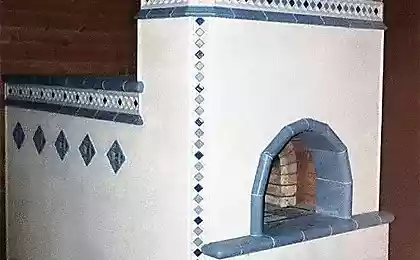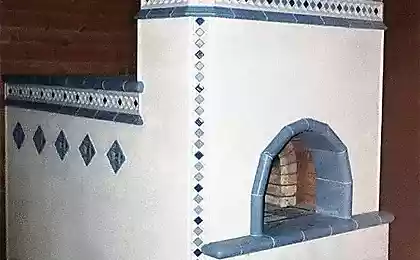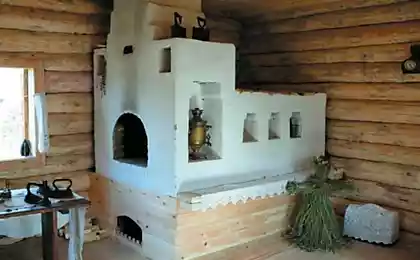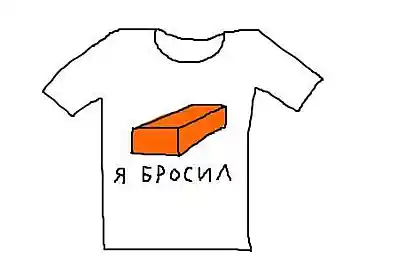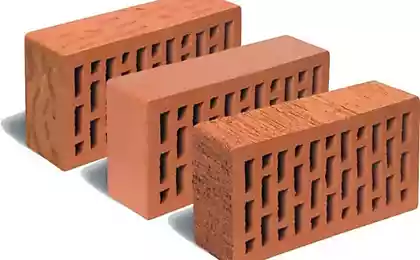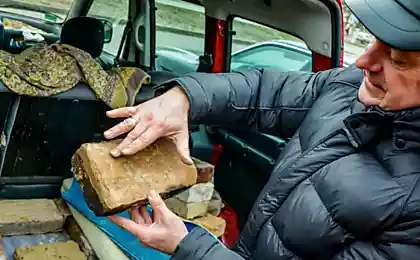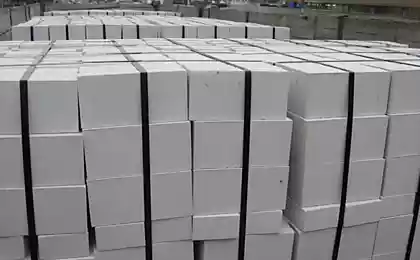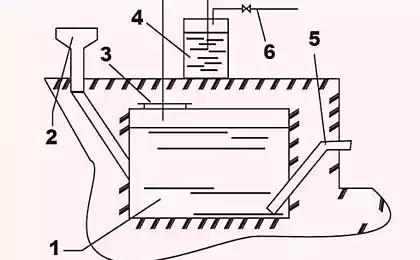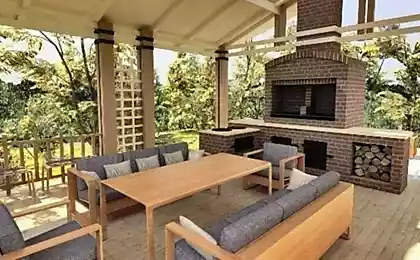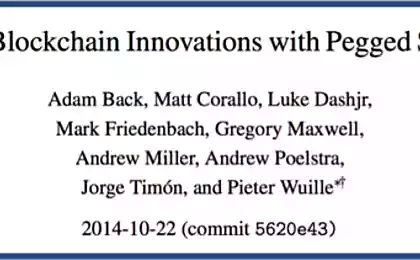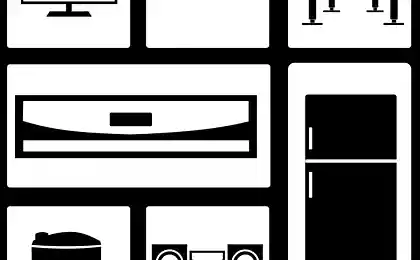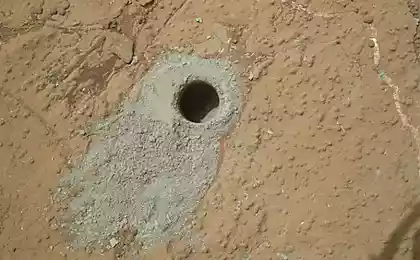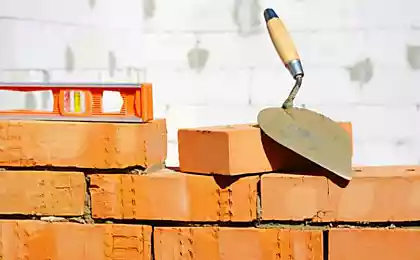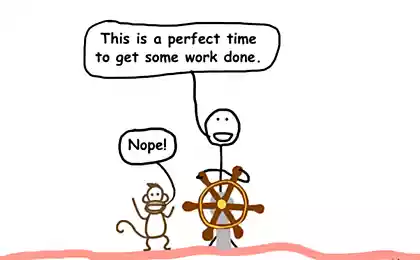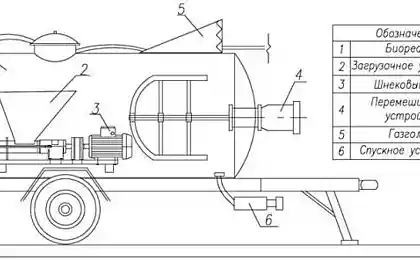456
Smart bricks recycle and produce electricity
Very cool project with the unfortunate acronym LIAR [in the lane "liar"] or Living Architecture designs building bricks, capable of removing a resource from sunlight, waste water and air. Bricks can connect to each other and to create a "wall bioreactor", which could then be used in housing, public buildings or office premises.
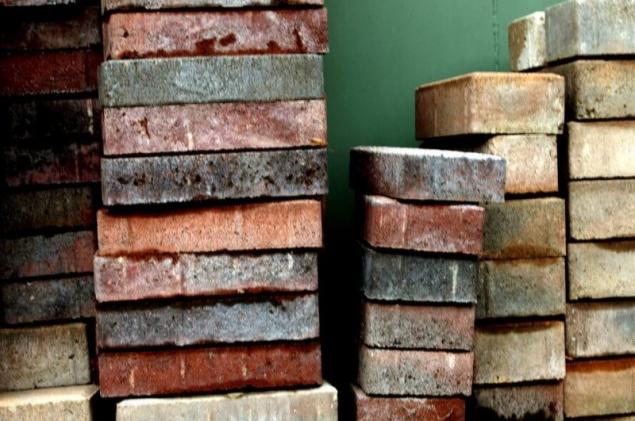
The project has a budget of 3.2 million euros koordiniruyutsya the University of Newcastle, in collaboration with experts from the University of the West of England (UWE Bristol), Trento — National research Council of Spain, LIQUIFER Systems Group and Explora.
Each unit will contain a microbial fuel cell filled programmable synthetic organisms developed by experts UWE Bristol.
Each brick contains a lot of microorganisms specifically selected for water treatment, recycling of phosphate, production of electricity and creation of new detergents. Live microorganisms that inhabit the wall, you'll be able to sense your environment and react to them through a series of mechanisms digital control.
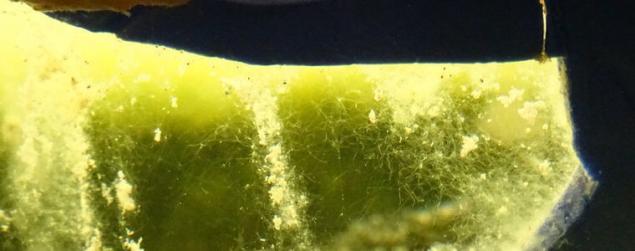
"The best way to describe what we are trying to create is a "biomechanical cow stomach," says Rachel Armstrong (Rachel Armstrong), Professor of experimental architecture at Newcastle University, UK, which coordinates the project. "It contains different departments, each of which converts organic waste, but in General, they are linked, we imagine how the digestive system for your home or office."
"Project LIAR incredibly exciting — it brings together lively architecture, computing and engineering, to find a new way to solve global problems such as sustainability," said Professor Armstrong.
Professor Andrew Adamatzky (Andrew Adamatzky), Director of the Centre for Unconventional Computing at UWE Bristol, who will lead the direction of mechanisms digital control, added: "We will build buildings that are biological computers".
The researchers also seek to find ways to use the phosphate mineral, which is becoming increasingly scarce — and create new detergents, using bricks.
"While this project is dealing with extremely small volumes of substances, we get valuable information about how the company will be able to collectively gather the recovered substances from their wastewater having the potential savings through re-allocation of resources through organization, or other interested parties, such as manufacturers of washing machines," says Professor.
The LIAR project has received funding from research and innovation programme of the European Union Horizon 2020 in accordance with grant agreement No. 686585. published
Source: facepla.net/the-news/tech-news-mnu/5509-%D0%BA%D0%B8%D1%80%D0%BF%D0%B8%D1%87-%D0%B1%D0%B8%D0%BE%D1%80%D0%B5%D0%B0%D0%BA%D1%82%D0%BE%D1%80.html

The project has a budget of 3.2 million euros koordiniruyutsya the University of Newcastle, in collaboration with experts from the University of the West of England (UWE Bristol), Trento — National research Council of Spain, LIQUIFER Systems Group and Explora.
Each unit will contain a microbial fuel cell filled programmable synthetic organisms developed by experts UWE Bristol.
Each brick contains a lot of microorganisms specifically selected for water treatment, recycling of phosphate, production of electricity and creation of new detergents. Live microorganisms that inhabit the wall, you'll be able to sense your environment and react to them through a series of mechanisms digital control.

"The best way to describe what we are trying to create is a "biomechanical cow stomach," says Rachel Armstrong (Rachel Armstrong), Professor of experimental architecture at Newcastle University, UK, which coordinates the project. "It contains different departments, each of which converts organic waste, but in General, they are linked, we imagine how the digestive system for your home or office."
"Project LIAR incredibly exciting — it brings together lively architecture, computing and engineering, to find a new way to solve global problems such as sustainability," said Professor Armstrong.
Professor Andrew Adamatzky (Andrew Adamatzky), Director of the Centre for Unconventional Computing at UWE Bristol, who will lead the direction of mechanisms digital control, added: "We will build buildings that are biological computers".
The researchers also seek to find ways to use the phosphate mineral, which is becoming increasingly scarce — and create new detergents, using bricks.
"While this project is dealing with extremely small volumes of substances, we get valuable information about how the company will be able to collectively gather the recovered substances from their wastewater having the potential savings through re-allocation of resources through organization, or other interested parties, such as manufacturers of washing machines," says Professor.
The LIAR project has received funding from research and innovation programme of the European Union Horizon 2020 in accordance with grant agreement No. 686585. published
Source: facepla.net/the-news/tech-news-mnu/5509-%D0%BA%D0%B8%D1%80%D0%BF%D0%B8%D1%87-%D0%B1%D0%B8%D0%BE%D1%80%D0%B5%D0%B0%D0%BA%D1%82%D0%BE%D1%80.html

